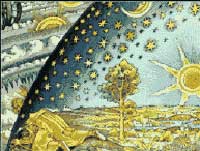| Science Good, Bad and Bogus - HPSC1200 |
|
||||||||||||||||||||||||||||||||||||||||

Description What is science? What are its distinctive characteristics as a form of inquiry? Why are astrology, 'creationism' or parapsychology widely considered to be pseudosciences? A critical consideration of such inquiries raises central questions concerning the nature of science, involving issues such as the nature of observation and evidence, theories and laws, explanation and prediction, etc. Issues to be considered include the 'Galileo Affair', 'science vs. religion' and relativism. These are placed in an historical context from the Ancient Greeks to twentieth-century philosophers. Also considered are the nature of scientific revolutions and 'postmodern' approaches to science.
Learning Outcomes Students who successfully complete this course will:
Assessment
|
|||||||||||||||||||||||||||||||||||||||||

| Contacts | Library | myUNSW | WebCT |